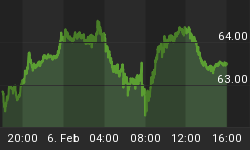In contrast with a depression, a recession is relatively easy to bring to an end. The genesis of a recession is caused by excessive credit creation on the part of banks and the Fed. The superfluous money drives prices higher and the rate of inflation begins to increase at a pace that makes the Fed uncomfortable. The Central bank then begins to raise rates in order to soak up that liquidity and put an end to its easy monetary policy. The higher interest rates serve to choke off consumer borrowing and the amount of money in the system compared to the total availability of goods and services becomes reduced. Any inflation that was in the economy gets squeezed out. Once prices return to a favorable level, the Fed begins to reduce rates again and the boom bust cycle repeats. That's the playbook response to a minor reduction in GDP.
However, the only cure for a depression is time. Not the abrogation of the free market. The seeds of a depression are sown when an extreme over supply of money and credit is allowed to continue for a protracted period of time. When this phenomenon occurs, it produces a pernicious level of debt to pervade throughout the economy. All sectors of the economy become overleveraged and the need to reduce debt becomes paramount. The economy then experiences a severe contraction in GDP. In a depression, the pull back in borrowing is not caused by interest rate increases from the Fed but an inability of the economy to take on further debt. A depression can last for many years as consumers, banks and the government goes through the painfully long and arduous process of deleveraging.
Unfortunately, the kneejerk response on the part of the government and central bank is to stimulate the economy by spending money and reducing interest rates. That is the very same strategy used to combat a recession. However, their response fails to produce the desired result because it ignores the root cause of the problem -- debt levels that have become unsustainable. It is not lower interest rates on borrowed money that the consumer seeks, it is less debt. If fact, all attempts by the government to mollify the depression tend to exacerbate the situation by force feeding more debt when it is least capable of being serviced.
What does history say about the effectiveness of government intervention? In Japan, the Nikkei Dow hit a high of 39,957.44 on December 29th 1989. Then it's epic real estate and equity bubble burst. The composite average is trading below 7,600 today. Even after two decades of trying to turn their market around, their government's barrage of stimulus plans and a near zero percent interest rate policy has done little to ameliorate the malaise. In fact, it has only prolonged the healing process. Average annual growth remained an anemic 1.5% throughout the 1990's. And in the last quarter of 2008, Japanese GDP contracted at an annual rate of 12.7%!
A similar result was experienced by both Herbert Hoover and Franklin Delano Roosevelt after they deployed a plethora of government interventions to combat the Great Depression. After four years of Hoover's wealth distribution and trade wars, and five years into the New Deal, they both failed to bring the economy out of the depression. Unemployment reached 20% in the years 1937-1938 and the percent change in GDP dropped 18.2%. It wasn't until we fought and won WWll that the economy began to enjoy a sustainable recover.
Unfortunately, we see the same playbook being deployed today as was used under the Hoover/Roosevelt regime. President Obama is following George W. Bush with the signing last week of his own stimulus plan that totals $787 billion. And of course, this is probably the first in a series of spending plans that are intended to help bring the economy back on track.
The reason all the government's efforts fail to solve the problem is clear. Time is needed to allow asset values to retreat back to historically normal levels that can be supported by the free market. And time is necessary for debt levels to be attenuated to a level where the can be serviced without having the Fed artificially forcing interest rates down. Any and all attempts to prevent deleveraging and to prop up asset prices will cause years to be added to the healing process. Additionally, all government efforts to "help" end up becoming a huge misallocation of resources as they take capital from the private sector and redistribute it in the most inefficient manner. What's worse is that the increased government spending adds yet more public sector debt to an economy already reeling from a mountain of liabilities.
This buildup in debt levels was unprecedented in history, thanks to a Real Estate bubble that was used to bail out an equity bubble. It would stand to reason that if the government continues to try to manufacture a recovery, it could take more than a decade to return to prosperity. The question is, do we have the patience to let the free market function and endure several years of hardship, but then emerge as a much stronger country. Or will the compulsion to intervene just propel us yet deeper into the abyss.
Be sure to listen in on my Mid-Week Reality Check.















